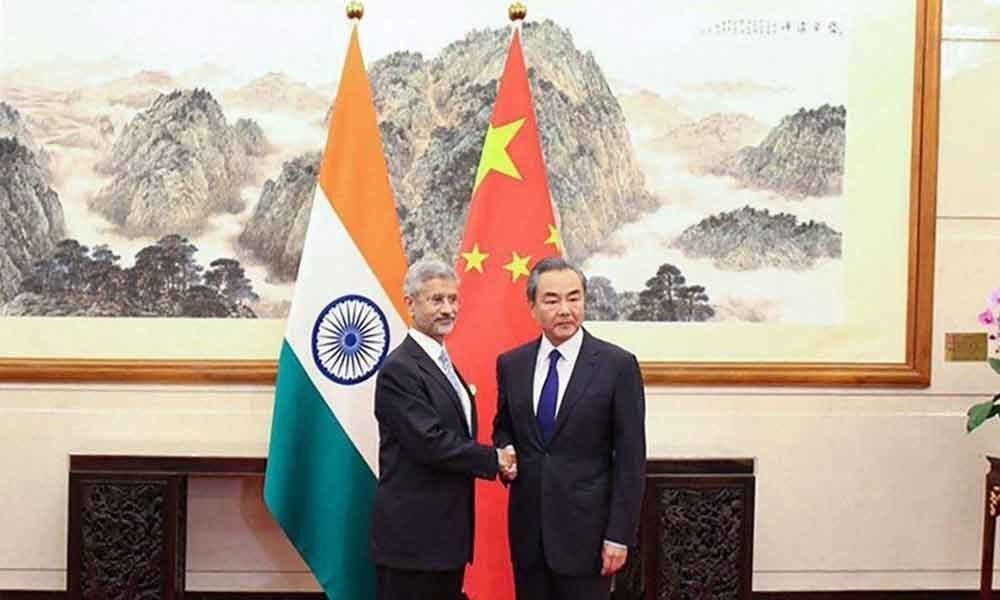Differences shouldn't become disputes: India

India, China relationship should be a factor of stability: EAM Jaishankar
Beijing: India on Monday told China that it is important to ensure that any bilateral differences should not become disputes, as Beijing said it is "very closely" following the Indo-Pak tensions over Kashmir and its "ramifications" and asked New Delhi to play a "constructive role" for regional peace and stability.
External Affairs Minister S Jaishankar, who is on a crucial three-day visit to China, called on Chinese Vice President Wang Qishan, considered a confidant of President Xi Jinping, and later had a restricted delegation-level talks with Foreign Minister Wang Yi.
Welcoming Jaishankar, Wang referred to the Indo-Pak tensions without directly mentioning about India scrapping the Article 370 of the Constitution that gave special status to Jammu and Kashmir.
"On the basis of the five principles of peaceful co-existence, we can have mutually beneficial cooperation. This is in the fundamental interest and long-term interest of our two peoples and contribute to world peace and human progress," Wang said.
"When it comes to the recent tensions between India and Pakistan and the possible ramifications, we follow these developments very closely. We hope that India would also play a constructive role for the regional peace and stability," Wang said.
The visit of Jaishankar, the first Indian minister to tour China after the Modi government began its second term, is taking place shortly after India's decision to revoke the special status of Jammu and Kashmir and divide the state into two Union territories - Jammu and Kashmir, and Ladakh.
His visit was finalised much before India's move to revoke Article 370 of the Constitution that gave special status to Jammu and Kashmir.
Jaishankar's visit comes days after Pakistan foreign minister Shah Mahmood Qureshi travelled to Beijing on August 9 to seek China's support for his country's attempts to take India's move to revoke special status to Kashmir to the UN Security Council.
India has maintained that Jammu and Kashmir is its integral part and the issue is strictly internal to the country.
Jaishankar's visit is mainly to finalise arrangements for President Xi's visit to India later this year for the second informal summit with Prime Minister Narendra Modi.
In his opening remarks, Jaishankar said "as you know India-China relationship has a very unique place in global politics. Two years ago, our leaders recognised the reality and reached consensus at Astana that at a time of global uncertainty, India, China relationship should be a factor of stability."
"To ensure that, it was important that differences between us, if any, should not become disputes. It was matter of great satisfaction that at the Wuhan summit last year, there was very deep, constructive and open exchange of views between our leaders. We have seen the impact of that on the bilateral relations since," he said, referring to the summit meeting between Prime Minister Modi and President Xi.
"Today looking at the efforts that while the leaders give further guidance for the growth of our relationship, it is important to build public support for the relationship.
We have done that over the years by being sensitive to each other's core concerns and by managing differences properly and by working on the positive convergences that we have on the relationship," he said.
"I hope today the discussions we have would help us translate those convergences into many more shared activities and collaborations," he said.
Jaishankar, who served as India's Ambassador to China from 2009 to 2013, the longest tenure by an Indian envoy, told the foreign minister that "it is a pleasure for me to visit China early in my tenure as Foreign Minister to co-chair the high-level mechanism with you to also make preparations for the forthcoming informal summit between our leaders".
In New Delhi, External Affairs Ministry spokesperson Raveesh Kumar had said, "India does not comment on the internal affairs of other countries and similarly expects other countries to do likewise."








